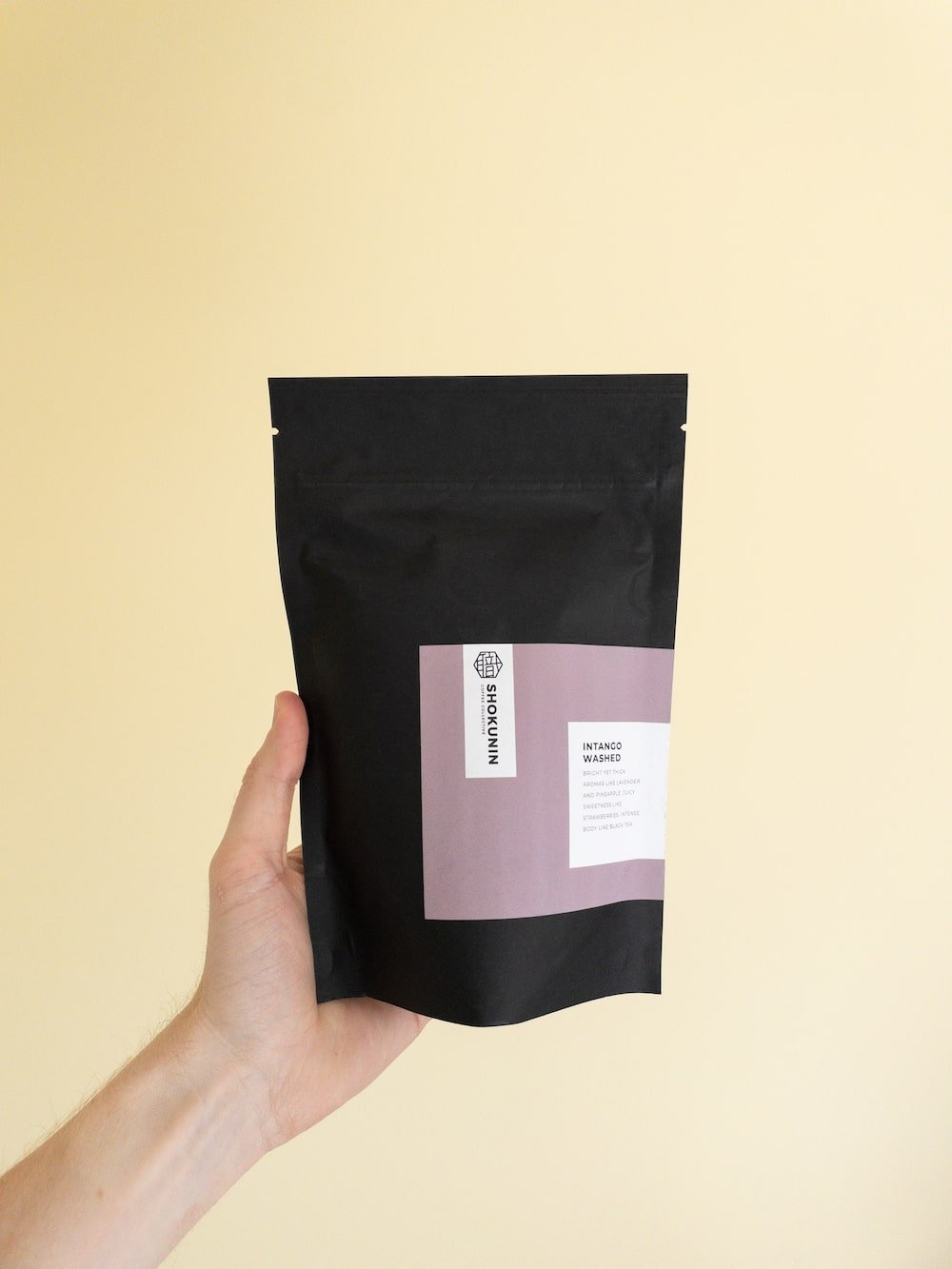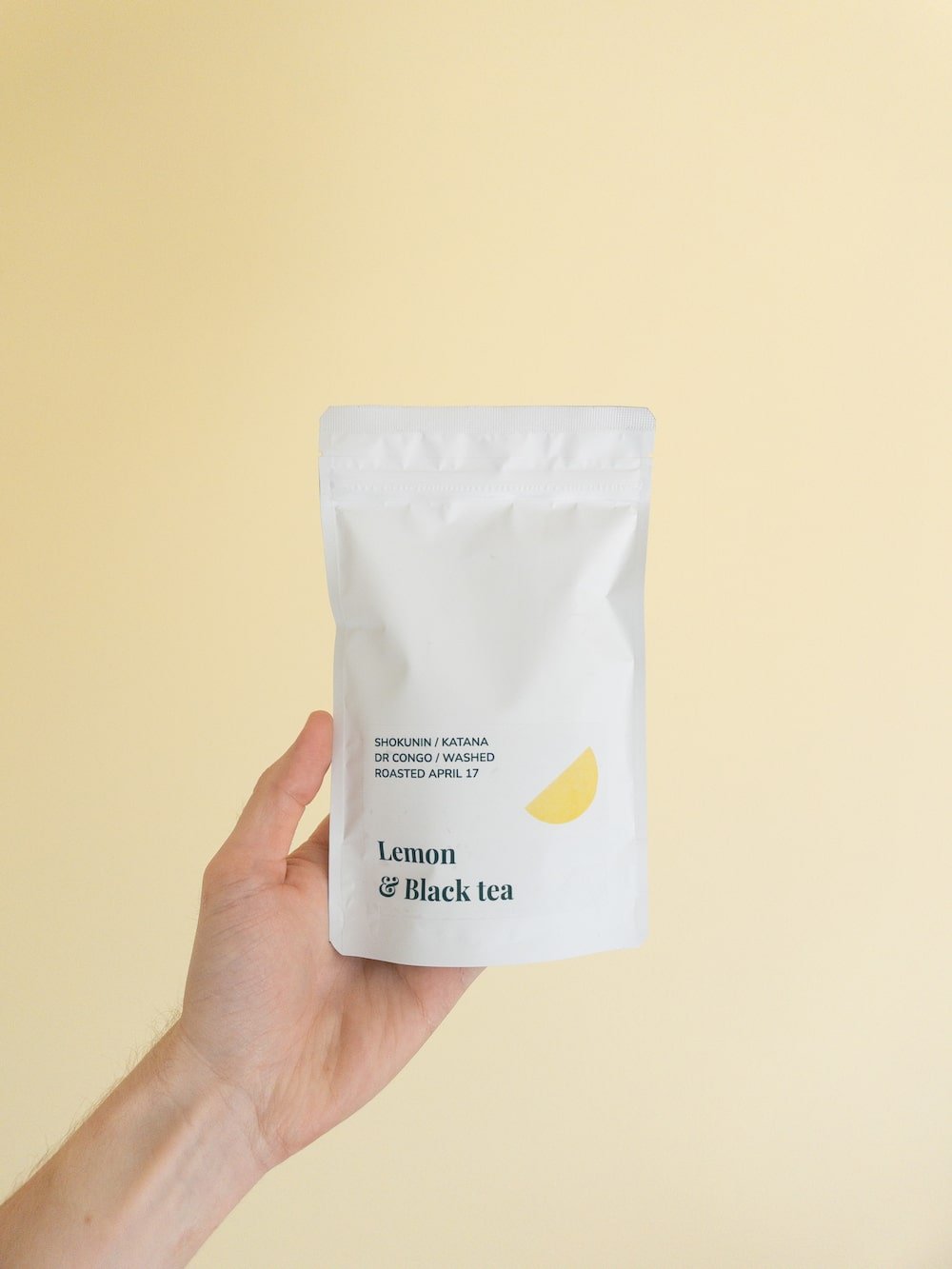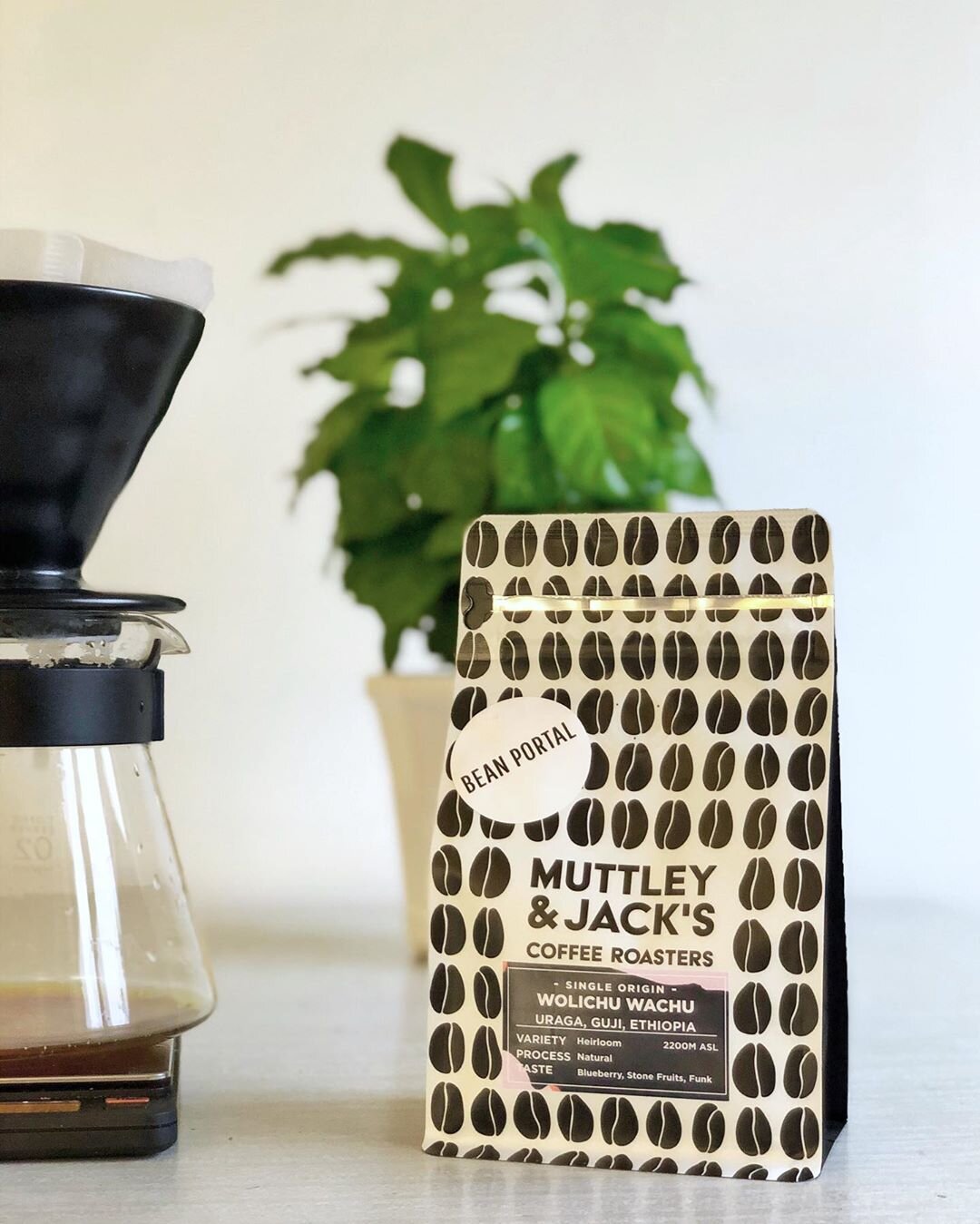We heard about your previous work within humanitarian and environmental organizations. How does this experience impact your work?
It's true! I spent a long time working with non-profit organisations and although I've switch over to the business side of things I still hold the same values of sustainability, transparency and humanitarianism that drove me during those years. It means that we don't focus on profit above everything like many businesses and although we are starting out slowly we want to build a business that grows slowly, carefully and sustainably and shares the benefits with everyone involved from seed to cup.
You’ve won quite some prices for your coffee roasting skills. What’s your philosophy when roasting and competing?
We enter competitions with the philosophy that it's an opportunity to learn and improve. A competition forces one to re-evaluate decisions you might usually make when roasting, and to examine any prejudices you might have about how things should be done. Preparing for a competition means I'm trying out new ideas and experimenting with various aspects of roasting. Sometimes the experiments are a flop, but sometimes they result in an improvement or a new insight. It's also great to meet and learn from other competitors - speciality roasters are more like colleagues than competitors, eager to share and help each other.
We noticed on your website that you’re open for internships. Who is eligible to apply and what will the internship be like? Maybe some of our subscribers are interested in learning how to roast coffee :-)
It's open to anyone and everyone, but ideally someone who can be available for at least eight weeks. It's three days per week and a mix of helping out with tasks around the roastery, taking part in cupping and quality control, and following a special project agreed upon by all parties over the internship period - for some it might be learning from scratch how to roast, for others it might be improving their roasting, or it could even be on other non-roasting aspects of the business such as creating workshops or running a digital marketing project.
Do you have a brewing recipe that you would like to share?
I'm all about the v60 and roast all of our coffees to taste great in this recipe:
· 31g coffee - ground medium/fine
· 500 ml filtered tap water at 94 degrees
· Rinse the filter paper
· Bloom 60g water for 40 seconds
· At 40 seconds add another 140g water for 30 seconds, swirl the v60.
· At 1:20 add another 200g water for 30 seconds
· At 2:00 pour the final 100g water.
Many of our subscribers will try your coffee for the first time. What can they expect from the three featured coffees of this month (Baroida, Wolichu Wachu, and Nyakizu), and why are they special to you?
I roast only coffees that I love and so each of the three coffees are special to me in their own way. Rwanda is especially meaningful as it is the first coffee producing country that I ever visited and it was there that I walked among coffee trees for the first time. The coffees from the southern province are so elegant and smooth - the Nyakizu has citrus, black tea and a complex elegance that I appreciate in a cup. Ethiopia is also a special origin for a coffee roaster - it's where all the world's coffee began and thousands of heirloom coffees still grow wild in the rainforests there. I love the Wolichu Wachu because it so clearly has the blueberry flavour notes so characteristic of the Guji region - the natural process adds sweetness and a little funk, making it taste of stewed blueberry which is a perfect autumn note. I love the Baroida from Papua New Guinea as it challenges our preconceptions about Asian coffee - coffee from this part of the world is generally thought to be more inclined to have spicy or tobacco notes - the Baroida is all about fruit and flowers - with tons of orange citrus and even gorgeous elderflower notes.
September’s box featuring Muttley & Jack’s included the following coffees ⚡️
Baroida
Origin: Papua New Guinea
Process: Washed
Altitude: 1700 - 1850 MASL
Varieties: Arusha & Bourbon
Tasting notes: ”Refreshing notes of elderflower and orange zest and the sweetness of lemonade in a medium bodied coffee.”
We are delighted to have a coffee from Papua New Guinea in this month’s box! It it the second time in Bean Portal’s history that we feature a coffee from this very special island nation. Baroida is a third-generation family-run farm, that has been producing coffee since the 1960s, from the Eastern Highlands of the country. This is a refreshing coffee with notes of elderflower and orange zest, and it is just as good hot as it is on ice. Enjoy!
Wolichu Wachu
Origin: Ethiopia
Process: Natural
Altitude: 1900 - 2210 MASL
Varieties: Heirloom
Tasting notes: ”A gentle ‘funk’ from the mild fermentation of this natural coffee. Fruit derived sweet notes of blueberry, red cherry and stone fruits. Medium to creamy bodies with a pleasant lingering aftertaste.”
Wolichu Wachu is a relatively new washing station in Guji, Ethiopia, that started operations in 2017. It was built to process specialty coffee, which explains the deliciousness of this coffee. Fresh from harvest, this coffee was picked Feb-April this year. The natural process gives it the blueberry notes, accompanied by red cherry and stone fruit. You will also find a funkiness of this coffee, coming from the mild fermentation.
And our Tasting box™ subscribers also received 💥
Nyakizu
Origin: Rwanda
Process: Washed
Altitude: 1750 - 2100 MASL
Varieties: Bourbon
Tasting notes: ”Sparkling acidity, delicate black tea characteristics with notes of sweet lime and brown sugar.”
The high altitudes and rich soils of south Rwanda, combined with plenty of rainfall, creates an ideal place for growing great coffee. This is where the Nyakizu washing station is located, next to the Nyungwe natural forest, right at the border to Burundi. Rwanda is one of our favourite coffee countries, and this one does not disappoint us. Expect black tea characteristics with notes of sweet lime and brown sugar.
Step up your coffee game! Get in on our next box:






















